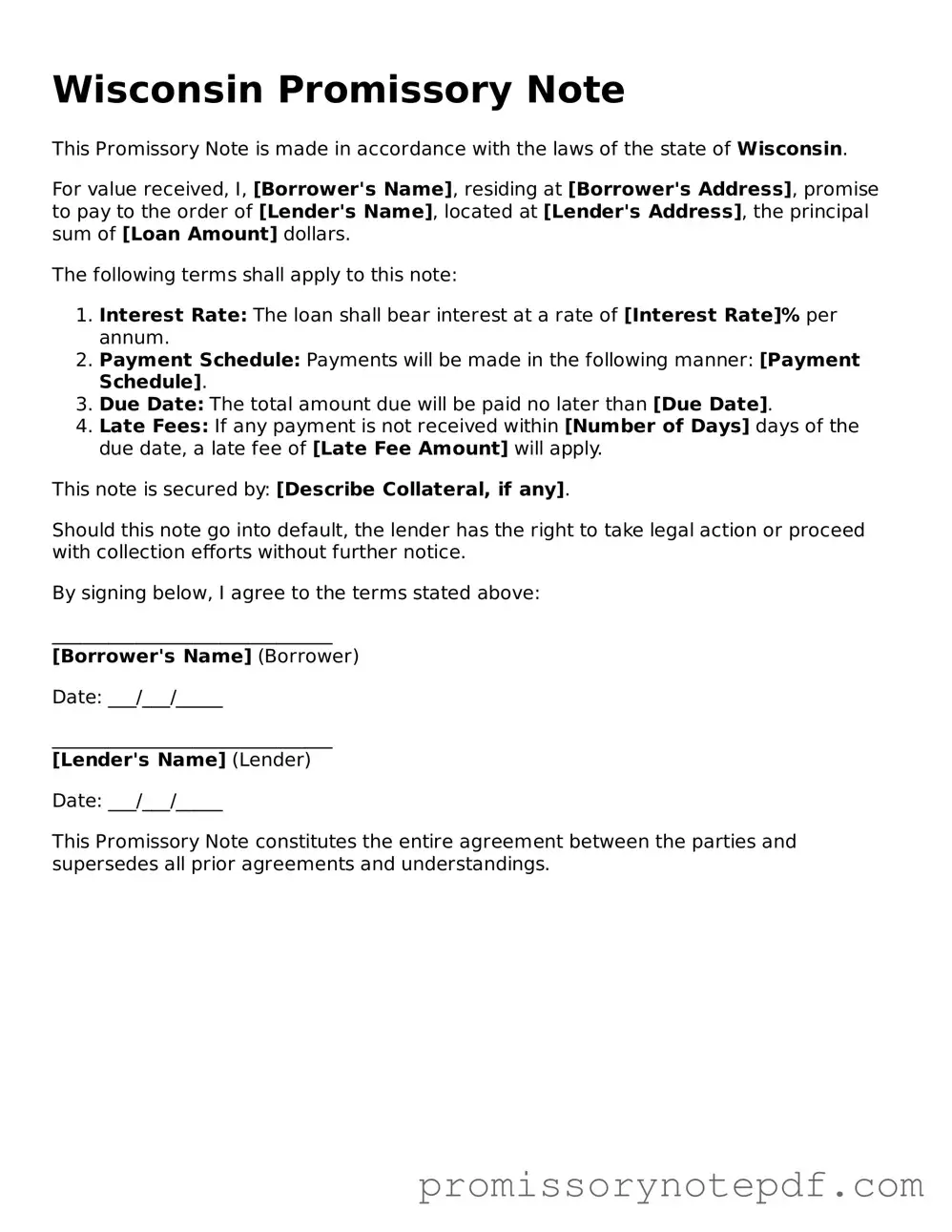A promissory note is a financial instrument that serves as a written promise to pay a specified amount of money to a designated person or entity. Similar to a promissory note, a loan agreement outlines the terms of a loan between a borrower and a lender. This document typically includes details such as the loan amount, interest rate, repayment schedule, and any collateral involved. Both documents establish a legal obligation for the borrower to repay the borrowed funds, but a loan agreement often provides more comprehensive terms and conditions than a simple promissory note.
A mortgage is another document closely related to a promissory note. While a promissory note represents the borrower's promise to repay a loan, a mortgage secures that promise with real property. In essence, a mortgage gives the lender a claim on the property if the borrower fails to repay the loan. This dual nature of a mortgage makes it a crucial document in real estate transactions, as it protects the lender's interest while providing the borrower with the funds needed to purchase a home.
An installment agreement bears similarities to a promissory note in that it also involves a borrower agreeing to repay a debt over time. This document outlines the specific terms of repayment, including the amount of each installment and the frequency of payments. Unlike a promissory note, which may be used for a single loan, an installment agreement is often used for multiple payments, making it a common choice for larger purchases or long-term financing arrangements.
A security agreement is another document that shares characteristics with a promissory note. This agreement is used when a borrower pledges collateral to secure a loan. Like a promissory note, it creates a legal obligation for the borrower to repay the debt. However, a security agreement goes a step further by detailing the specific collateral that the lender can claim if the borrower defaults. This added layer of protection for the lender distinguishes it from a simple promissory note.
A letter of credit is similar to a promissory note in that it involves a financial commitment from one party to pay another. Typically used in international trade, a letter of credit assures the seller that they will receive payment from the buyer's bank. While a promissory note is a direct promise to pay a specific amount, a letter of credit serves as a guarantee of payment, adding an extra layer of security for the seller in transactions that may involve higher risks.
A personal guarantee is another document that can be compared to a promissory note. In this case, an individual agrees to be personally responsible for a debt incurred by a business or another party. This document acts as an assurance to the lender that, should the primary borrower default, the individual will step in to fulfill the payment obligations. While a promissory note is typically signed by the borrower alone, a personal guarantee adds another layer of accountability, particularly in business financing scenarios.
An IOU, or informal note, is a less formal version of a promissory note. It serves as a simple acknowledgment of a debt owed by one party to another. While an IOU lacks the detailed terms and conditions typically found in a promissory note, it still represents a commitment to repay a specific amount. Both documents establish a debtor-creditor relationship, but an IOU may not carry the same legal weight or enforceability as a formal promissory note.
Finally, a lease agreement can be likened to a promissory note in that it involves a commitment to make payments over time. In a lease, a tenant agrees to pay rent to a landlord for the use of property. Similar to a promissory note, a lease outlines the payment terms, duration, and other obligations of the parties involved. While the primary focus of a lease is the rental of property, the underlying financial commitment mirrors that of a promissory note, highlighting the importance of clear terms in any financial arrangement.
